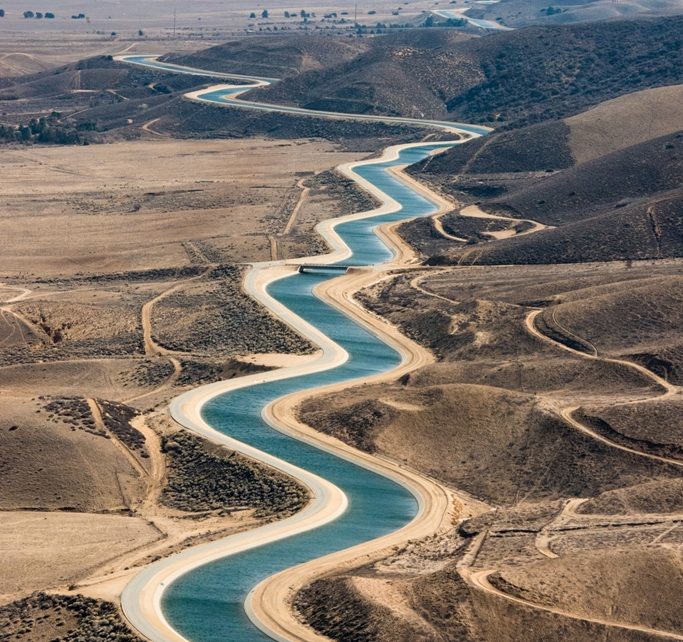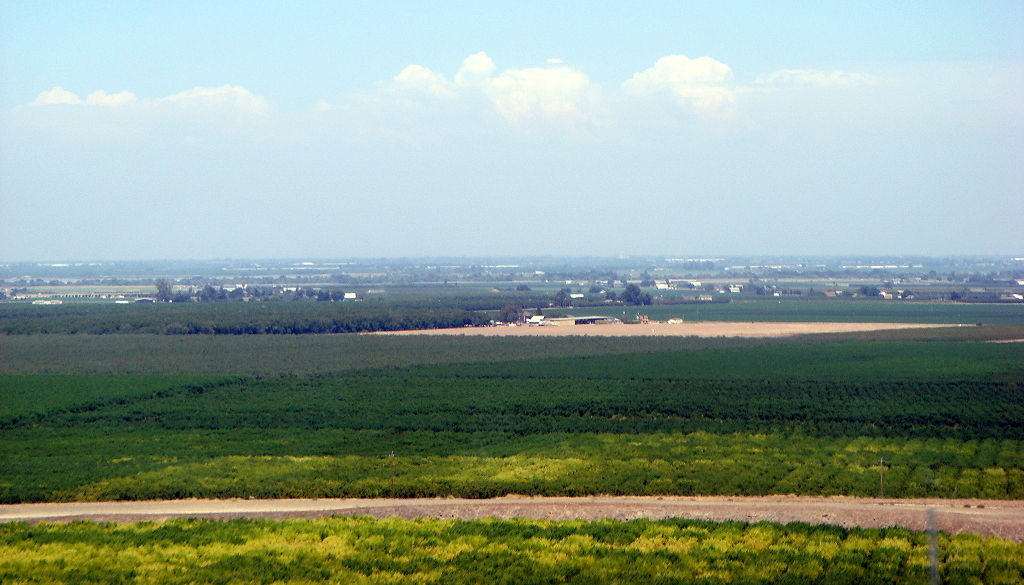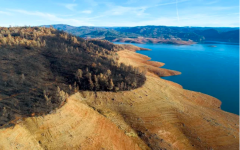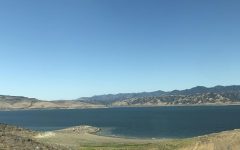
The California Aqueduct. (Photo: CA State Water Project)
Why is a Wisconsin Prof Using Beijing Research to Push Water Snitching in California?
Univ. Wisconsin study links to Journal of Chinese Governance
By Katy Grimes, July 12, 2021 2:55 am
Residents of Sacramento seemed to be particularly enthusiastic about snitching on water wasters, according to a recent study by the University of Wisconsin-Madison.
The Sacramento Bee published an article last week encouraging Sacramento residents to rat-out neighbors for “wasting” water on landscape, swimming pools and other suburban water uses, and referenced the study.
The article, “Is your neighbor wasting water? Snitching on them may ease California drought, study says,” referenced the study by La Follette School Associate Professor Manny Teodoro, Public Water Waste Reporting: Contextual Correlates and Conservation Outcomes, published in Water Resources Research, and examines the effectiveness of “California’s participatory surveillance programs,” such as Save our Water.
“California’s participatory surveillance programs” is bureaucrat-totalitarian-speak for snitching on your neighbors. While California politicians and water officials have long supported water snitches, this is the first time we’ve seen a study supporting the idea, and curiously, an out-of-state university study.
Prof. Teodoro bills himself as an environmental justice fighter saying, “Water and environmental justice animate me.”
During the 2014–2017 drought, California state and local governments established hotlines and websites for anonymous water waste reporting, the study summary reports. “Californians responded to the call for waste reports enthusiastically,” according to Teodoro, “Utilities in the state recorded more than 485,000 water waste complaints over the course of the last emergency.”
“Authorities seeking to employ public water waste reporting as part of their drought management strategy should bear in mind that demographic, socioeconomic, institutional, and political contexts are likely to shape public participation and conservation outcomes,” the study summary says. “Specifically, participatory surveillance efforts in communities served by investor-owned water utilities and in places with lower levels of education, lower political participation, and/or low population densities may require additional outreach to be effective.”
The abstract from the study shows that the study isn’t really about how to save California’s precious water; it’s all about monitoring neighbors and ratting them out when their sprinklers run too long or on the wrong allowable water day: “The success of water conservation restrictions depends in part on governments’ capacity to monitor water use. Inviting the general public to report instances of water waste is one means of expanding government capacity to monitor and enforce water use.”
“Does participatory surveillance help achieve conservation goals?” Teodoro asks. “We explore the social correlates and conservation outcomes of participatory surveillance regimes with an analysis of water conservation in the U.S. state of California.”
Droughts are naturally occurring; water deficits are government-created and political. So it’s particularly frustrating when politicians train their focus on urban water users, demanding more and more individual “conservation,” water rationing, rate increases and other punitive measures. Ironically, it’s the state of California which is the biggest water waster, sending billions of gallons of fresh snow runoff water to the ocean every year. And most cities are terrible at water conservation, allowing automatic sprinklers to run all night, into streets, or ignoring broken sprinklers.
California’s drought conditions are actually historically normal, yet each of California’s droughts are billed by government and media as the “driest period in the state’s recorded rainfall history.” Scientists who study the Western United States’ long-term climate patterns say California has been dry for significantly longer periods — more than 200 years.
The truth is that 50 percent of California’s water already goes toward environmental purposes. Of the rest of the water, only about 10 percent goes to “urban” uses for homes and businesses, and 40 percent is used by agriculture. A full 50 percent of the state’s water is used for environmental purposes.
If the State of California didn’t allow billions of gallons of fresh water to spill into the Pacific Ocean every year, we wouldn’t ever face water shortages.
And as California water expert Kristi Diener says, “Families did not waste their way into a water shortage and cannot conserve their way out. Saving 25% of a 10% urban use equals 2.5%. Ongoing water releases continue to put fish over people, and both are suffering. More water rights holders than ever before are about to receive stop-using-water notices.”
But there’s nothing about the state’s own water wasting in Teodoro’s study, or even much about statewide water conservation. Instead, Teodoro’s study supports the idea of “participatory surveillance” and cites as the reference for his study a Chinese research article by Associate Professors at Beijing Academy of Development and Strategy at the Renmin University of China:

Number of times cited according to CrossRef: 1
-
- Youlang Zhang, Xufeng Zhu, Social ties and citizen-initiated contacts: the case of china’s local one-stop governments, Journal of Chinese Governance, 10.1080/23812346.2021.1933809, (1-20), (2021).
The link leads to the Journal of Chinese Governance where Youlang Zhang’s and Xufeng Zhu’s research article, “Social ties and citizen-initiated contacts: the case of china’s local one-stop governments“ focuses on the question: “Why are some citizens more likely to initiate contact with the government than others?”
These are authors of the Journal of Chinese Governance research article:
Xufeng Zhu is Professor and Associate Dean in the School of Public Policy and Management at Tsinghua University, China. His research interests encompass policy process, think tanks, and public governance.
In the abstract for the Chinese study, it says: “We find that citizens with strong political ties are significantly likely to initiate contact with local one-stop governments.” What does “strong political ties” mean? In the Chinese context, it would likely mean that these citizens have some sort of political tie to the Chinese Communist Party and/or the Chinese government because China is a one-party state.
Since Prof. Teodoro cites this Chinese study, what is his view of using CCP/government-linked informants in China and how would he inculcate such political loyalty and promote similar politically-inspired actions in the U.S. and California?
Teodoro’s abstract concludes “…results indicate that social contexts can influence participation in participatory surveillance, and that participatory surveillance can be a potent means of enhancing water restrictions during a drought emergency.”
The University of Wisconsin-Madison says nothing in its press release about the connection and references to China in Teodoro’s study, or to his co-authors, Y. Zhang (Renmin University of China) and D. Switzer (Truman School of Government and Public Affairs, University of Missouri, Columbia, MO, USA).
It’s difficult not to question why Prof. Teodoro not only did a joint study with a researcher at Renmin University of China issuing propaganda encouraging California residents to snitch on their neighbors, as China encourages its people to rat out anti-government troublemakers.
How did this study happen to come about?
Why would a University of Wisconsin-Madison professor author a study specifically about California’s “participatory surveillance” on water conservation efforts?
Was there funding provided to University of Wisconsin-Madison? If so, did China fund the study? Or, who funded the study?
The Globe sent these questions to Professor Teodoro and will report back when they are answered.
- California Lawmaker Making the State More Hostile to Business - April 18, 2024
- California Democrats’ Backdoor Reparations Scheme - April 17, 2024
- California’s Senate Democrats Reject Bill to Make Purchasing a Child for Sex a Felony - April 16, 2024





If only the money wasted on the “compliance industry” was spent on water storage instead. Remove silt while water levels are down, which means NOW, not after years of studies with permits approved when lakes are full. Approve water storage permits quickly with one stop permit offices that can permit in 30 days. Stupid that so many permits are needed from so many agencies for one project, even a smaller private $100, 000 or $200,000 reservoir or lake, especially when it is not in a year round stream.
but let’s keep sucking the water out of CA and sticking it in plastic bottles for profit. waste, then more waste.
Are all these water policy decisions being made & influenced by Chinese interests that wish to acquire fertile farmland to feed their people???
This started several years ago with the acquisition of several US food-processing companies (that we no longer use) and I’m betting that many of the water management decisions are being made by corrupt CA Democrats that are doing deals with the CCP for their own personal benefit and for the strategic enrichment of the CCP….
That’s the only connection about the reservoir drains that make logical sense….